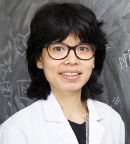
Yimon Aye, PhD
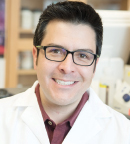
Juan Cubillos-Ruiz, PhD

Mikala Egeblad, PhD
The Pershing Square Sohn Cancer Research Alliance announced the six winners of the 4th annual Pershing Square Sohn Prize for Young Investigators in Cancer Research, awarded annually to promising early-career, New York City–area scientists. Recipients receive $200,000 in funding per year for up to 3 years, for a total of $600,000, to support explorative, high-risk/high-reward cancer research. Founded in 2013, The Pershing Square Sohn Prize facilitates access to leaders in the life science, philanthropic, and business communities.
“The Pershing Square Sohn Prize invests in brilliant young scientists on their way to making significant contributions to the field of cancer research,” said Bill Ackman, Cofounder of The Pershing Square Foundation and Chief Executive Officer of Pershing Square Capital Management, LP. “We are proud to support early-career investigators working on innovative research projects who traditionally lack access to capital to advance their work and bring us closer to discovering a cure for cancer.”
2017 Prize Winners
- Yimon Aye, PhD, Assistant Professor, Weill Cornell Medicine: Dr. Aye’s research analyzes the overlooked aspects of ribonucleotide reductase function and regulation to discover two novel binding proteins that can either promote or suppress DNA synthesis. These previously unnoticed proteins may play a fundamental role in treating drug-resistant B-cell lymphomas and may reveal the next generation of disease intervention.
- Juan Cubillos-Ruiz, PhD, Assistant Professor, Weill Cornell Medicine: Dr. Cubillos-Ruiz’s project seeks to understand the main mechanism that hinders the immune system’s ability to fight the growth of ovarian tumors. Specifically, he will examine how cellular stress within ovarian cancer tumors impacts the immune system and whether disabling “stress sensors” could be used to enhance the efficacy of treatment.
- Mikala Egeblad, PhD, Associate Professor, Cold Spring Harbor Laboratory: Dr. Egeblad will research the relationship between chronic inflammation and the metastatic recurrence of breast cancer. In particular, her team will explore the role of neutrophils in the awakening of dormant cancer cells. Neutrophils can form neutrophil extracellular traps as part of the body’s reaction to inflammation. By targeting these neutrophil extracellular traps, cancer recurrence may be prevented.
- Daniel Heller, PhD, Assistant Member, Memorial Sloan Kettering Cancer Center: Dr. Heller has created a nanotechnology platform that would allow doctors to develop personalized medicines that target the many mutations in a specific patient’s tumor while steering these drugs away from healthy cells to avoid toxicity. His research will extend beyond the traditional limits of nanomedicine by looking at the specific changes in drug pharmacology that are needed to improve kinase inhibitors, a common component of chemotherapy that can cause severe side effects.
- Eirini Papapetrou, MD, PhD, Associate Professor, Icahn School of Medicine at Mount Sinai: Drawing on cutting-edge technologies from stem cell research and clustered regularly interspersed short palindromic repeats (CRISPRs) genome editing, Dr. Papapetrou’s lab has pioneered a new approach to modeling myelodysplastic syndromes, which can progress to acute myeloid leukemia. With no existing effective treatment for these blood disorders, she hopes to use this new technology to study myelodysplastic syndromes and uncover new therapeutic options.
- Richard White, MD, PhD, Assistant Member, Memorial Sloan Kettering Cancer Center: Dr. White’s research examines tumor microenvironments to identify new cell types that could be used as therapeutic targets. Using zebrafish as a model to study cancer, he has uncovered novel interaction between melanoma cells and fat cells. His research aims to show that adipocytes promote melanoma progression and metastasis. This novel interaction will reveal promising new therapeutic targets for treatment. Dr. White’s research will also be supported by the Melanoma Research Alliance, in a special partnership between the two foundations to show support for this innovative and important melanoma research.
Foundation Leaders Comment
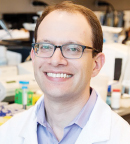
Daniel Heller, PhD
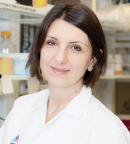
Eirini Papapetrou, MD, PhD
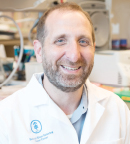
Richard White, MD, PhD
“The Sohn Conference Foundation believes the Prize program’s investment in leading scientists will change how cancer is understood and treated in the near term,” said Evan Sohn, Vice President of the Sohn Conference Foundation. “Each of the Prize winners found a window into how cancer functions in a new or unexpected way; we are giving them the time and funds they need to pursue their insights. Because of how well equipped they are, we are confident they will make discoveries that reverberate throughout the cancer research community and reach the patients for whom our Foundation fights.”
“The quality work and innovation demonstrated by the 2017 Prize winners are truly impressive,” said Olivia Tournay Flatto, PhD, President of the Pershing Square Foundation. “We are deeply inspired by these young investigators and the spirit of collaboration among New York’s life-sciences researchers and the institutions with whom they’re working. It will be thrilling to witness the culmination of their efforts as they pursue innovative and groundbreaking cures and treatments.”
Additional details about the Prize winners can be found at https://psscra.org/winners/. ■

